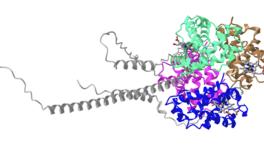Earth Day: Thousands of Scientists Are Waving Red Flags
Today the world is occupied by Covid-19 and the changes unleashed by the efforts to check its spread, but this should not draw our attention away from the other most critical threats before the planet. These threats must be addressed, for the world will soon be grappling with a post-Covid-19 scenario. At that time, our steps must keep all those pathways in mind which can supplement our efforts to repair the damage caused by Covid-19, while not neglecting longer-term looming crises.
Two of these global problems are increasingly becoming more and more serious. First, the proliferation of weapons of mass destruction, or WMDs. No doubt these are the most serious and obvious threats, but several experts are also pointing to fast-increasing threats from robotic or AI weapons as well, and there are warnings about other highly-destructive weapons including chemical and biological weapons.
Second, there are a range of very serious environmental problems led by, but not confined to, climate change. Most serious global environmental problems are generally related to each other at some level. These include acidification and pollution of oceans, the water crisis, air pollution, unprecedented rates of species loss, accentuation of nitrogen and phosphorus cycle, manifold increases in hazardous substances and technologies, threats to safe food as well as changes in land-use patterns, particularly loss of natural forests.
A significant number of eminent scientists, including many hundred Nobel Laureates, have been pointing out that these two sets of problems, seen together, constitute nothing less than a survival crisis for all life on our planet. The basic life-nurturing conditions of Earth, these scientists say, are being threatened like never before by man-made conditions. This is such a compelling concern for many eminent scientists that they have organised themselves into an effort to observe the impact human beings are having on nature, and issuing warnings and cautionary statements to the world.
One important milestone was the famous statement issued in 1992 by 1,575 scientists under the umbrella of Union of Concerned Scientists. The “World Scientists’ Warning to Humanity”, signed by 99 of the living 196 Nobel Laureates, was sent to the heads of all states. In very clear terms it said, “We...hereby warn all humanity of what lies ahead. A great change in our stewardship of the earth and the life on it is required, if vast human misery is to be avoided and our global home on this planet is not to be irretrievably mutilated.”
On the 25th anniversary of that warning, in 2017, a new statement was mobilised; this time endorsed by 13,524 signatories from 180 countries. After evaluating all the latest information, these scientists warned that humanity has “failed to make sufficient progress” in solving even those environmental challenges that had been foreseen. As a result, most of these problems were “getting far worse”. This had been the case since 1992, the scientists said. The only exception to humanity’s dismal failure was the efforts made to stabilise the stratospheric ozone layer.
Scientists who are concerned about WMDs have been issuing even more dire warnings. The Bulletin of Atomic Scientists has 13 Nobel Laureates in its Board of Sponsors. In consultation with them, this organisation maintains a special clock called the Doomsday Clock. The midnight hour, 12 O’ Clock, is taken here to symbolise Doomsday and every year based on available scientific evidence and opinion, the hands of the clock are reset. In 2019, Earth was set at just two minutes to midnight. This year too, the hands were moved by 20 seconds, bringing the planet only 100 seconds to Doomsday. While this is just a symbolic way to depict how serious the situation is, the reasons for bringing the clock forward are explained by the Board. The planet, it says, is “closer to apocalypse than ever”. Theirs is an explicit warning to leaders and citizens around the world that the international security situation is now more dangerous ever. Things were never this bad, “not even at the height of the Cold War”, the scientists say.
The greatest concern they express is of a genuine possibility of a civilisation-ending nuclear war—“whether started by design, blunder or simple miscommunication”. Then they add, “Climate change that can devastate the planet is already happening.”
The third threat listed in this statement is the dangers of nuclear war and climate change being “compounded by a threat multiplier, cyber-enabled information warfare, that undercuts society’s ability to respond.”
“In the nuclear realm national leaders have ended or undermined several major arms control treaties and negotiations during the last year, creating an environment conducive to a renewed nuclear arms race, to the proliferation of nuclear weapons, and to lowered barriers to nuclear war.”
While it is clear that we are in the middle of a very serious survival crisis, effective solutions do not appear to be on the horizon. Hence it is time to look at far-reaching reforms in international governance systems and, linked to this, also governance reforms at other levels.
Change can only come if it is supported by sustained and large-scale efforts for peace, through environment protection and justice, each of which requires our value systems to be transformed. First off, all movements that strive for peace, justice, a pristine environment and women’s equality must come together and contribute for a better world.
Keeping in view the seriousness of the survival crisis and its very distressing implications, one can only hope that answers emerge soon. Very committed, courageous and sustained work can help this struggle end in success.
The writer is an independent journalist and author, convener of Save the Earth Now Campaign and author of Planet in Peril, Protecting Earth for Children and Man Over Machine. The views are personal.
Get the latest reports & analysis with people's perspective on Protests, movements & deep analytical videos, discussions of the current affairs in your Telegram app. Subscribe to NewsClick's Telegram channel & get Real-Time updates on stories, as they get published on our website.
























